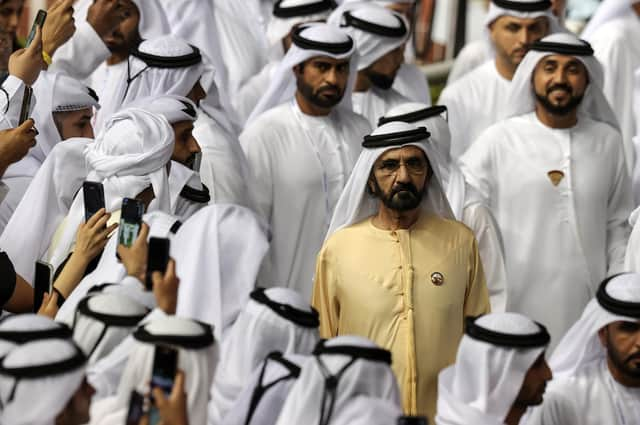Retired Scottish judge, Lord Angus Glennie, should not be working for Dubai International Financial Centre Courts – Kenny MacAskill


Lord Angus Glennie, who, to be fair, served in Scottish courts with distinction until his retiral a few years back, is sitting as a judge in that institution.
The reason he was mentioned was that two retired Irish judges had been forced, or at least decided, to withdraw from that sinecure, but he remained. Criticism of the Irish involvement came from both legal and political circles.
Advertisement
Hide AdAdvertisement
Hide AdIvana Bacik, the Irish Labour Party leader, stated that Irish judges sitting there provided “a mechanism to support an oppressive regime”. Bill Shipsey, a retired Irish senior counsel and an executive member of Amnesty International, wrote that Lord Glennie and other international judges shouldn’t ignore human rights abuses by the United Arab Emirates (UAE).
It’s clear that whatever skills international judges may bring, what really matters is the veneer of legitimacy given to the institution. These courts may largely be dealing with finance and commerce but they are underpinning a regime that treats its own and others reprehensibly.
Sheikh Mohammed bin Rashid Al-Maktoum is the ruler of Dubai and vice-president of the UAE and indeed it seems it was the despot himself who swore Lord Glennie into his new role.
But he’s far from a benign ruler. Human rights abuses are prevalent in those parts and the imprisonment of many is routine. The Sheikh’s also known in courts in the UK as he’s been embroiled in a London court action where his behaviour towards family has drawn scathing criticism from their Lordships.
Lord Glennie’s retired and there’s less conflict than at least one of the Irish judges who still had a formal role in Ireland. But he’s in receipt of a far from modest judicial pension paid for out of the public purse.
I hope he’ll reconsider his position, as did a former Irish colleague and that the Lord President will make it clear to him and others it’s simply unacceptable to sit there.
Kenny MacAskill is Alba MP for East Lothian
Comments
Want to join the conversation? Please or to comment on this article.

